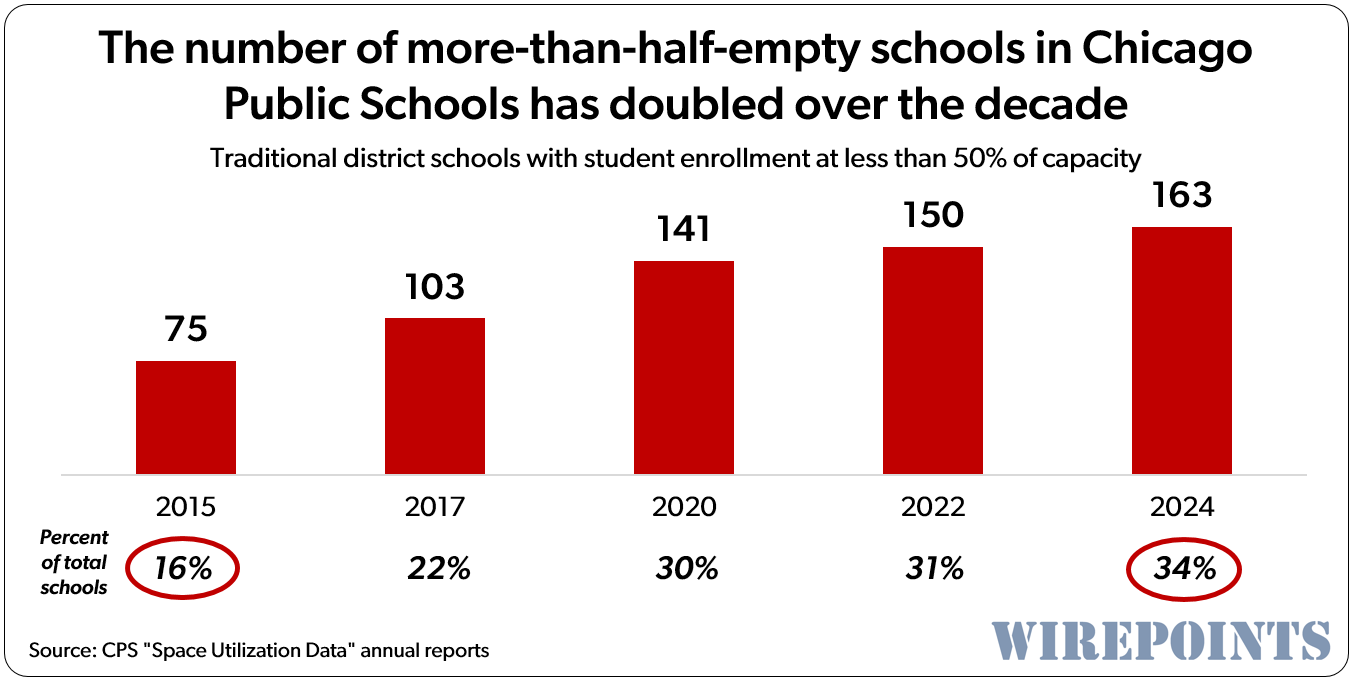By: Mark Glennon*
Aside from the human dimension of Puerto Rico’s crisis, a personal account of which is below, the major significance of its bankruptcy will be whether it sets some form of precedent for Illinois, Chicago and other broke governments.
Technically, Puerto Rico isn’t in a bankruptcy proceeding. Instead, it’s in a very similar proceeding under PROMESA, the law passed last year by Congress specifically for Puerto Rico. Wall Street will watch “closely to see how other indebted municipal governments, including Chicago and Illinois, may fare in confrontations with investors,” as one report put it.
In other words, Congress could similarly act to create a specialized form of insolvency proceeding for troubled states like Illinois, whether under the Bankruptcy Code or not. For now, states are not authorized to file bankruptcy. Congress could also create a more specialized proceeding for very large cities like Chicago.
Particularly interesting to watch will be the performance of the seven-member oversight board created by PROMESA that now will have a dominant role in shaping a reorganization plan for Puerto Rico. That’s key because real control has to be taken away from the incumbent politicians who otherwise have authority to act on behalf of the government. Michigan overcame that problem with the Detroit bankruptcy by giving broad authority to an emergency manager.
While Puerto Rico indeed may set precedent, make no mistake that it’s very different from Illinois. A humanitarian collapse indeed is underway on the island. For that, I’ll add some direct observations by Jack Skagerberg, an old friend from Chicago’s south suburbs who went on to a big career in reorganizations and bankruptcies of all sorts. His wife is Puerto Rican and they have a home there.
Jack owes his success to resolving insolvencies properly and he’s among the most upbeat people I know, but when I reached him by phone today he was down. “It’s depressing to be here,” he said.
“So many people have left, especially people in prime working age.” The numbers back him up: The island’s population has dropped from more than 5 million to 3.4 million.
“Horse tranquilizers and opiates are everywhere. It seems like 40% of the males are stoned every day,” he said. Xylazine, a horse tranquilizer, is in fact a drug of choice in Puerto Rico. A National Geographic piece said it has created “zombies on a zombie island.” It’s often used together with heroin or cocaine.
On the face of the numbers, Illinois might not seem terribly far behind Puerto Rico. The island has debts of about $70 billion plus unfunded pension liabilities of another $40 billion. That’s about $34,000 per person. Illinois’ per person debts are about $18,000 per person if you include bonds, unfunded pensions, retiree healthcare and our bill backlog.
But Puerto Rico has lost almost all its ability to deal with its debt, Jack says. “Nothing is manufactured here since tax subsidies for pharmaceutical production ended some years ago. Tourism has collapsed. Sales and income taxes have skyrocketed so everybody wants cash payments to avoid paying. There’s a 20-year supply of condominiums for sale. There’s little farming because of poor soil — only tree-grown products are produced domestically.”
That’s not Illinois. Puerto Rico’s population loss of 1.6 million is particularly striking and makes Illinois’ loss of 37 thousand seem trivial.
No, Illinois isn’t Puerto Rico. Nor is Chicago. But Stockton and San Bernadino, California weren’t either. Not being Puerto Rico doesn’t mean you can’t run out of money. And it doesn’t mean Puerto Rico won’t frame the debate about how to resolve government fiscal crises.
*Mark Glennon is founder of Wirepoints. Opinions expressed are his own.

 A set of state lawmakers want to extend CPS’ current school closing moratorium to February 1, 2027 – the same year CPS is set to transition to a fully-elected school board. That means schools like Manley High School, with capacity for more than 1,000 students but enrollment of just 78, can’t be closed for anther three years. The school spends $45,000 per student, but just 2.4% of students read at grade level.
A set of state lawmakers want to extend CPS’ current school closing moratorium to February 1, 2027 – the same year CPS is set to transition to a fully-elected school board. That means schools like Manley High School, with capacity for more than 1,000 students but enrollment of just 78, can’t be closed for anther three years. The school spends $45,000 per student, but just 2.4% of students read at grade level.
 Hopefully, all media will get the message, in Illinois, too.
Hopefully, all media will get the message, in Illinois, too. Ted joined Tom Miller of WJPF to talk about Illinois’ highest-in-the-nation property taxes, why lawmakers don’t want to touch the tax’s cost drivers, just how much Illinoisans’ tax burden has grown over the decades, why Gov. Pritzker failed to meet his promise to reform property taxes, and more.
Ted joined Tom Miller of WJPF to talk about Illinois’ highest-in-the-nation property taxes, why lawmakers don’t want to touch the tax’s cost drivers, just how much Illinoisans’ tax burden has grown over the decades, why Gov. Pritzker failed to meet his promise to reform property taxes, and more.
Could anyone give a realistic assessment of when the State of Illinois, the City of Chicago, and the Chicago Public School System (CPS) go into bankruptcy court?
I don’t think even the best minds could say “when.” It is only a question of “when” for Chicago. Illinois is trickier and entirely novel.
The “how” could be even more difficult. Will it play out as for Puerto Rico, Detroit, or perhaps other cities? I can’t predict what the politicians will do. Thanks for responding.
What would the $18,000 debt per person in IL be, if instead of the denominator being all people, it was the # of people working and paying IL state & local taxes ?
Steve, here is part of the answer: Let’s assume that only the top 6% have any ability to contribute meaningfully to our debt, as progressives contend, which is probably true: https://wirepoints.org/simple-math-shows-absurdity-of-illinois-progressive-tax-cure-wirepoints-original/
Good Grief! So the 230B indebtedness — rather than being spread among the 13M citizens (which makes no sense) — would be spread across 6% of the 3.5M households, which is 200,000 households. And that amounts to….drum roll please……….$1,150,000 per lucky household !
Yes, I used the census number for how many “households” are the top 6%.
Is there anyway to determine, guess or otherwise, how many of those “households” have at least 1 public employee?
We were in Puerto Rico twice this winter, once with our kids, and later we returned, rented a car and drove all over the island. San Juan, Ponce and Rincon are fantastic places to visit. The people we met were wonderful and PR has an interesting history. You’re right, there’s pretty much no manufacturing there. Hopefully bankruptcy will help them turn the corner.
It will be interesting to see how public sector employee current-pension deals and currently-being-collected pensions are treated specifically. Will all other debt be forgiven except the debt the public sector itself has run up? Will the board in PR design the bankruptcy.favoring the public sector? Or will it shed the debt equitably between private and public sectors and bond holders? Nobody knows. I’m glad I visited there already 20 ago, San Juan, the rainforest, the caves, drove over its mountainous middle and saw the irredescent seas of ponce, the antenna at Arecibo. I can cross it off for a second… Read more »
Will the board in PR design the bankruptcy.favoring the public sector? Or will it shed the debt equitably between private and public sectors and bond holders? Considering Chief Justice Roberts of the SCOTUS will be the one most responsible for shaping judicial proceeding and indirectly the debt write-down I would not expect to see pubic pensions get deals that was substantially sweeter than bond holders. There may be some preferential treatment, but not the 100% for public employee pensions 1% for bond-holders that we saw in the Stockton BK. I do expect there to be better treatment for pensioners, especially… Read more »